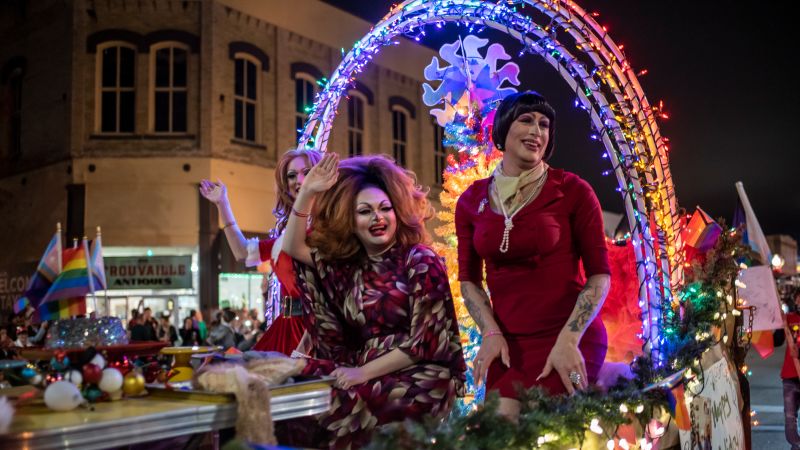Drag shows have become a contentious topic in the US, as Republican-led states seek to restrict or prohibit performances in the presence of children. While Republicans claim the performances expose children to sexual themes and imagery that are inappropriate, LGBTQ advocates say the proposed measures are discriminatory and could violate First Amendment laws. As the drag community gains visibility, bills are being considered in 11 states across the country, though none have yet been signed into law.
Drag has long been a source of self-expression, particularly for the LGBTQ community, as drag queens challenge gender norms and use exaggerated makeup and performances to tell stories. In 2017, drag queen Sasha Velour wrote for CNN, “Drag meddles in stories about gender, beauty, and culture… and then we squeeze our beautiful queer bodies into it, shifting the meaning, disrupting the total effect.”
However, Republican sponsors of some bills claim such performances are adult in nature and potentially harmful to children. Arkansas state Sen. Gary Stubblefield asked during floor remarks, “When you take one of these little kids and put them in front of drag queens that are men dressed like women, do you think that helps them or confuses them in regard to their own gender?” Tennessee state Sen. Jack Johnson said in a statement, “This bill is not anti-drag. It is pro-child.”
The bills look to limit “adult cabaret performances” on public property, threaten violators with a misdemeanor and repeat offenders with a felony, and include restaurants and bars that host drag performances under the state’s definition of a “sexually oriented business.” Parents or guardians of children who are either involved in drag shows or permit their children to be in the presence of one could be “required to complete parenting classes, substance abuse counseling, anger management counseling or other appropriate services” as determined by the state, according to bills in West Virginia. A Montana bill seeks to prohibit children from attending drag shows.
Advocates of LGBTQ and free speech rights fear that the laws, if passed, would have a chilling effect on the performances and argue that the language is vague. Shangela, a drag performer who has competed on “RuPaul’s Drag Race”, said, “The world of drag is no different than any other aspect of entertainment in our world. If you are a parent that is concerned about what your child is seeing, then you stay involved in what you’re allowing your child to be exposed to.”
As the drag community faces potential restrictions, it is important to remember that drag culture is a form of self-expression and a way to tell stories. We must ensure that the LGBTQ community is protected and that drag performances are allowed to continue in a safe and welcoming environment.
Source: www.cnn.com
